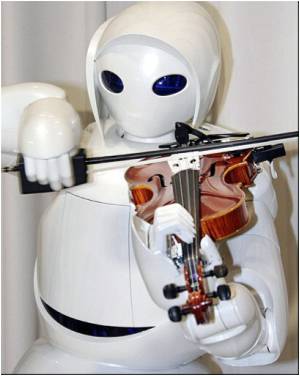Researchers have unveiled a robot that is capable of developing and showing emotions.

Nothing out of the ordinary, perhaps, except that Nao is a robot - the world's first that can develop and display emotions. He can form bonds with the people he meets depending on how he is treated. The more he interacts with someone, the more Nao learns a person's moods and the stronger the bonds become.
"We're modelling the first years of life," the Guardian quoted Lola Canamero, a computer scientist at the University of Hertforshire who led the project to create Nao's emotions, as saying.
"We are working on non-verbal cues and the emotions are revealed through physical postures, gestures and movements of the body rather than facial or verbal expression."
He can use video cameras to work out how close a person comes and sensors to detect how tactile they are.
"If you want to tell the robot it's doing well, you might show your face or smile or you might pat them on the head," Canamero said.
Advertisement
This understanding, plus some basic rules of what is good and bad for him learned from exploring his environment, allows Nao to indicate whether he is happy, sad or frightened with what is going on around him. The display actions for each emotion are pre-programmed but Nao decides by himself when to display each emotion or combination of emotions.
Advertisement
If people can behave naturally around their robot companions, robots will be better-accepted as they become more common in our lives, she said.
Nao's programming was developed as part of a project called Feelix Growing, funded by the European commission. It was a collaboration of eight universities and robotics companies across the UK, France, Switzerland, Greece and Denmark.
Source-ANI









